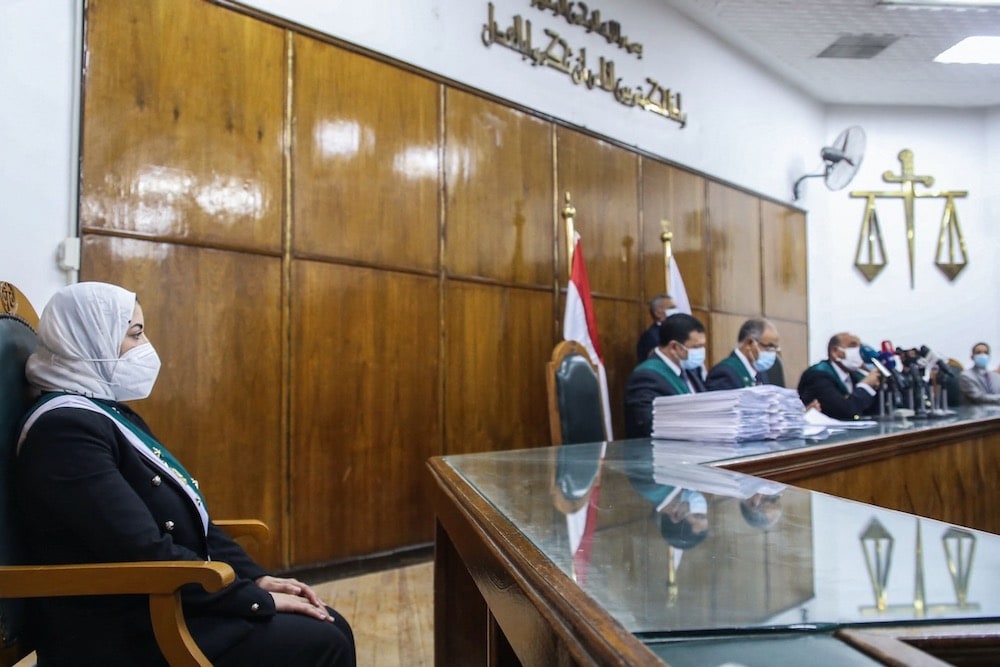Despite the dismissal of charges in the long-running NGO foreign funding case, human rights defenders continue to face ongoing persecution.
This statement was originally published on cihrs.org on 21 March 2024.
On 20 March, the investigative judge in Case no. 173 of 2011 announced the dismissal of charges against five human rights organizations, in the case known as the “NGO Foreign Funding Case”, and the lifting of travel bans and asset freezes issued against these organizations’ staff. Although charges were dismissed on grounds of insufficient evidence against the organizations and their staff, it remains to be seen if Egyptian authorities will respect the decision.
Though dismissing charges related to Case 173/2011 against these organizations is a belated vindication, it does not signal a change of the repressive course adopted by Egyptian authorities or the start of a serious reform process, as underscored by Mohamed Zaree, Director of Egypt Office at CIHRS: “Addressing Egypt’s human rights crisis requires serious steps starting with the immediate release of tens of thousands of prisoners of conscience, and dismantling the arsenal of draconian legislation and practices used by Egyptian authorities to crack down on peaceful political opposition, free media, and independent civil society”.
The investigative judge’s recent decision cleared the Cairo Institute for Human Rights Studies, Nadeem Center for the Rehabilitation of Victims of Violence and Torture, the Egyptian Initiative for Personal Rights, the Arab Network for Human Rights Information, and the Arab Penal Reform Organization and their staff. Yet the decision does not remedy the injustices suffered by the dozens of human rights defenders targeted by the case over the course of the previous decade, including lengthy prison sentences that were overturned in 2018, and travel bans and asset freeze orders, including those lifted by Wednesday’s decision. Egyptian authorities must issue a formal apology to the victims of this persecution and compensate them for the losses and hardship they have been forced to endure.
Egyptian authorities should also cease their crackdown on Egyptian civil society and human rights defenders beyond the scope of Case 173/2011. Dozens of human rights defenders, including Ibrahim Metwally, Ezzat Ghoneim and Hoda Abdelmoniem, have been behind bars for years on trumped up terrorism charges. Dozens of human rights defenders, including previously imprisoned ones, such as Mohamed al-Baqer, remain on the government’s terrorist entities lists. The Arab Center for the Independence of the Judiciary and Legal Profession also remains under investigation in a politicized offshoot of Case 173/2011, while other organizations previously targeted in Case 173/2011 found themselves facing other groundless cases after being cleared in Case 173/2011. Gasser Abdelrazek, Karim Ennarah, and Mohamed Bashir of the Egyptian Initiative for Personal Rights are also under travel bans and asset freezes in a different case.
The 18-year total in prison sentences (in absentia) against Bahey eldin Hassan, the Director of the Cairo Institute for Human Rights Studies, remains in effect. Dozens of human rights defenders live in exile due to active investigations and outstanding sentences against them, or for fear of reprisal upon return to Egypt. The Egyptian authorities illegally deny some of them their right to consular services abroad, rendering them without valid identification papers.
Egyptian civil society organizations are forced to operate under a repressive NGO law that gives authorities sweeping control over their activities, funding, and even control over the appointment of organizations’ boards. Meanwhile, Egyptian legislation, especially counter-terrorism legislation and the penal code, are systematically used to target independent civil society and human rights work. Only through comprehensive review of repressive Egyptian legislation, the releasing of the tens of thousands of peaceful political prisoners, and a genuine opening of public space, can Egyptian authorities demonstrate genuine political will to reform.
Background information on Case 173/2011 could be found on this link.



